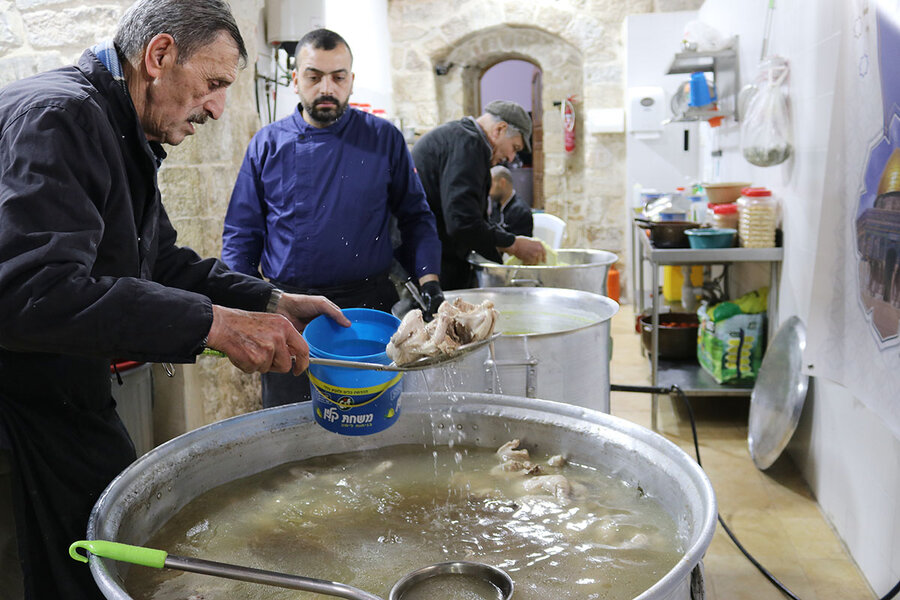Taylor Luck – Special correspondent
Down an almost-hidden passageway in Jerusalem’s labyrinthine Old City is Tikiya Khaski al-Sultan, a soup kitchen that dates to the height of the Ottoman Empire. It is a lifeline for modern-day Jerusalemites facing rising costs and needing “support without judgment.”
Six days a week, 52 weeks a year, head chef Samir Jaber and his staff arrive at 5 a.m. to begin preparations. On a Monday morning, chickens are boiling in giant vats, delivery boys are stacking crates of vegetables in the high-vaulted stone room, and Mr. Jaber is frantically checking inventory.
It is a lifeline for modern-day Jerusalemites….
Centuries ago, the soup kitchen served individuals a cracked wheat porridge known as tikiya soup; today, it serves full meals to be taken home for 300 families, some 1,500 to 1,800 people. “We want people to eat just as we eat at home,” Mr. Jaber says.
At 11:30 a.m., as recipients enter the kitchen, the head chef and his staff move as fast as possible, scooping whole chickens, rice, and potatoes into containers of all shapes and sizes.
“We don’t feel like beggars. We feel like respected individuals whose lives are being given added support,” says Rana, a mother of three. “This kitchen is a pillar on which we can stand. … Plus, the food is quite good.”
Photo credit: Taylor Luck, by permission
To read the full article, please visit https://www.csmonitor.com/World/Middle-East/2023/0726/Centuries-old-Jerusalem-soup-kitchen-serves-up-food-with-dignity






